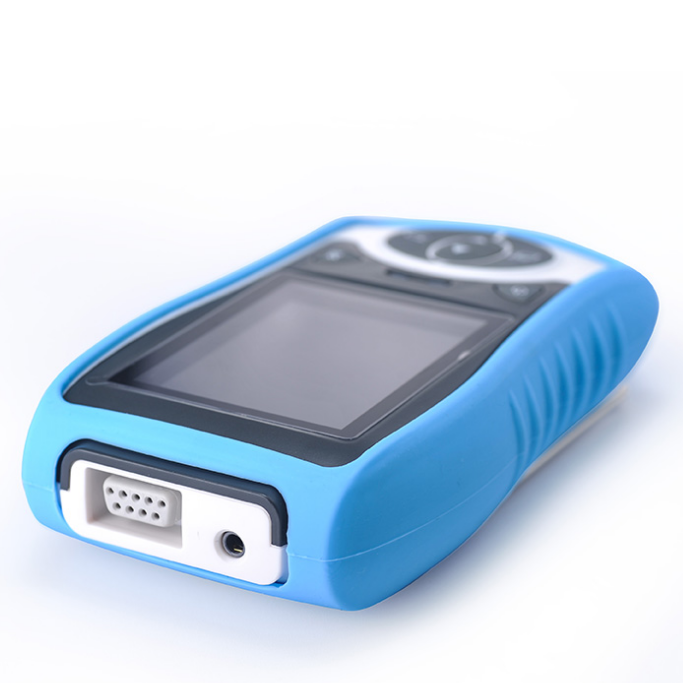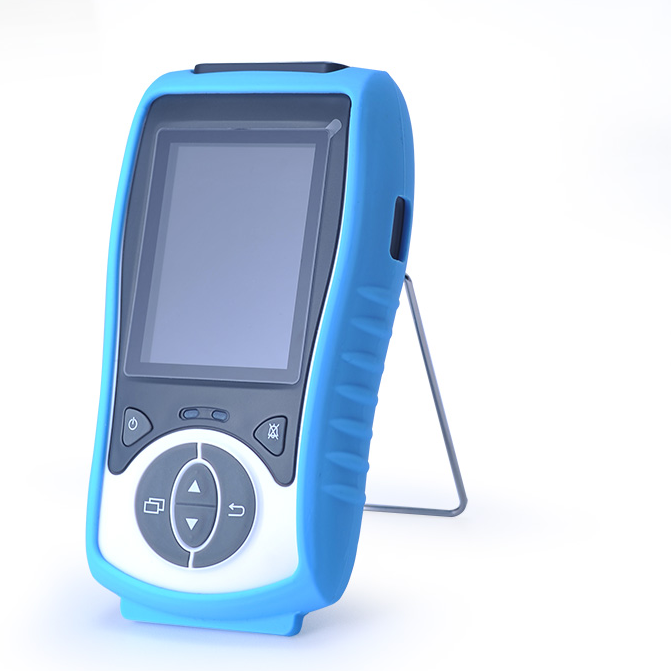Pulse Oximeters: Comparing the Omni FS380 and Biolight M800
Pulse oximeters have become an essential tool for monitoring health, from hospital settings to home use. But with a range of options available, how do you choose the right one? In this post, we'll compare three models from the Omni FS380 series - the standard, paediatric, and neonatal -as well as pit the Omni FS380 neonatal model against a comparable Biolight M800. We'll also delve into the brands' histories and reputations for quality.
Understanding the Omni FS380 Series
The Omni FS380 series of pulse oximeters are designed for non-invasive monitoring of arterial oxygen saturation (SpO2), pulse rate (PR), pulse strength, and plethysmogram. They are all lightweight, compact, and feature a durable silicon rubber shell, making them suitable for both clinical and home environments. The key difference between the three models lies in the target patient group, which is primarily determined by the type of probe included.
 Omni FS380 Pulse Oximeter (Standard): This is the general-purpose model, designed for adults. It comes with a standard adult finger probe and is a versatile tool for general monitoring.
Omni FS380 Pulse Oximeter (Standard): This is the general-purpose model, designed for adults. It comes with a standard adult finger probe and is a versatile tool for general monitoring.- Omni FS380 Paediatric Pulse Oximeter: This model is specifically tailored for children. While the main unit's features and specifications (such as the 2.8-inch color TFT LCD display and 90-hour data storage) are identical to the adult version, it includes a paediatric probe for a more comfortable and accurate fit on smaller fingers.
- Omni FS380 Neonatal Pulse Oximeter: For the smallest patients, this model uses a specialized neonatal probe. Like the others in the series, it offers a robust set of features, including visual and sound alarms, a user-friendly menu, and data transfer via USB. The core device functionality remains consistent across the series, with the specific probe being the differentiating factor.
A Head-to-Head: Omni FS380 vs. Biolight M800 Neonatal
When it comes to monitoring newborns, the choice between the Omni FS380 Neonatal and the Biolight M800 Neonatal pulse oximeters is a key decision. Both are high-quality devices, but they have distinct differences.
| Feature | Omni FS380 Neonatal | Biolight M800 Neonatal |
| Display | 2.8-inch color TFT LCD | 2.4-inch color OLED (with auto-rotation) |
| Power | 4X AAA batteries or rechargeable Li battery | 3X AA batteries (14+ hours) |
| Probes | Compatible with Nellcor SpO2 sensors; specific neonatal probe included | Supports adult, paediatric, and neonatal patients; includes appropriate probe |
| Data Storage | Up to 90 hours of test results | Up to 60,000 groups of short trend data |
| Optional Features | - | Optional ECG upgrade, Li-ion battery, charging cradle, and PC Host Software |
Comparison Summary: The Omni FS380 is a strong, purpose-built device with extensive data storage for continuous monitoring.
The Biolight M800, on the other hand, stands out for its versatility with its multi-patient functionality and upgradeable features, such as an optional ECG. The auto-rotating OLED display on the Biolight also offers excellent readability. Both devices are well-suited for their purpose, but the Biolight offers more advanced, flexible options for a wider range of clinical needs.
The History and Quality of the Brands
- Omni: The Omni series is a product of Infinium Medical, a brand that focuses on patient monitoring solutions. A key indicator of quality for Omni monitors is their incorporation of Masimo SET® (Signal Extraction Technology). This is a globally recognized technology known for its ability to provide accurate and reliable pulse oximetry measurements, even during patient movement or low blood perfusion. This partnership with Masimo speaks to Omni's commitment to using proven, high-standard technology in their devices.
- Biolight: Founded in 1993 in China, Biolight has grown to become a leading international provider of medical devices. The company allocates a significant portion of its annual revenue (10%) to research and development, a strong signal of its dedication to innovation. Biolight is also a publicly traded company on the Shenzhen Stock Exchange, which provides a level of financial transparency and stability. Research and studies, such as one comparing Biolight's Analog SpO2 technology, have demonstrated the brand's commitment to addressing common challenges like motion artifacts, which can lead to false alarms and inaccurate readings. This focus on improving core functionality highlights a commitment to quality and reliable performance.
In conclusion, both Omni and Biolight offer high-quality, reliable pulse oximeters. Your choice will depend on specific needs. For a straightforward, dependable device, the Omni FS380 series is an excellent choice. If you require a more versatile, feature-rich device with potential for future upgrades, the Biolight M800 may be the better option. To buy these online check out our Pulse Oximeters page here:
https://orangenz.co.nz/product-category/medical/monitoring/pulse-oximeter/


